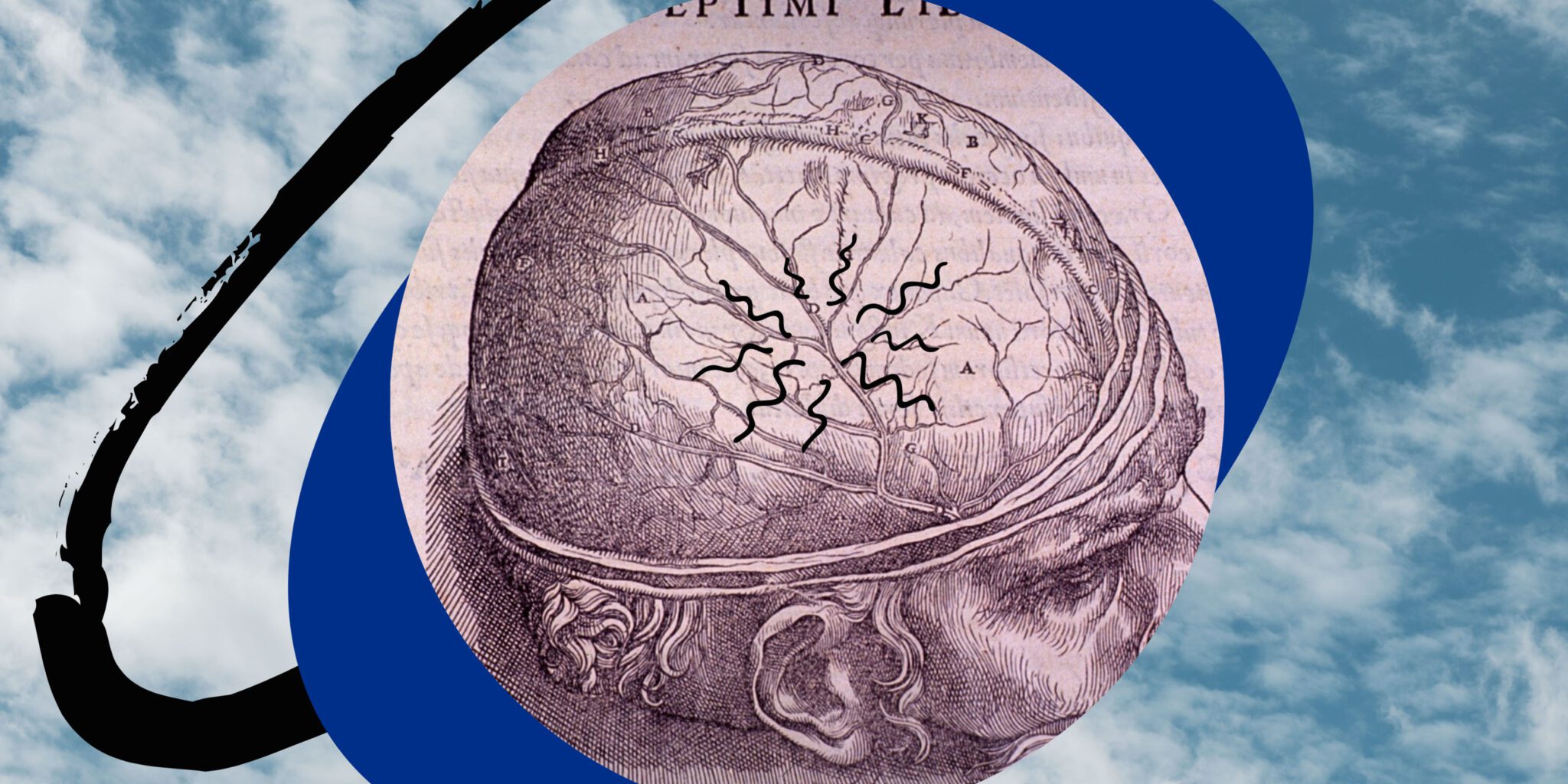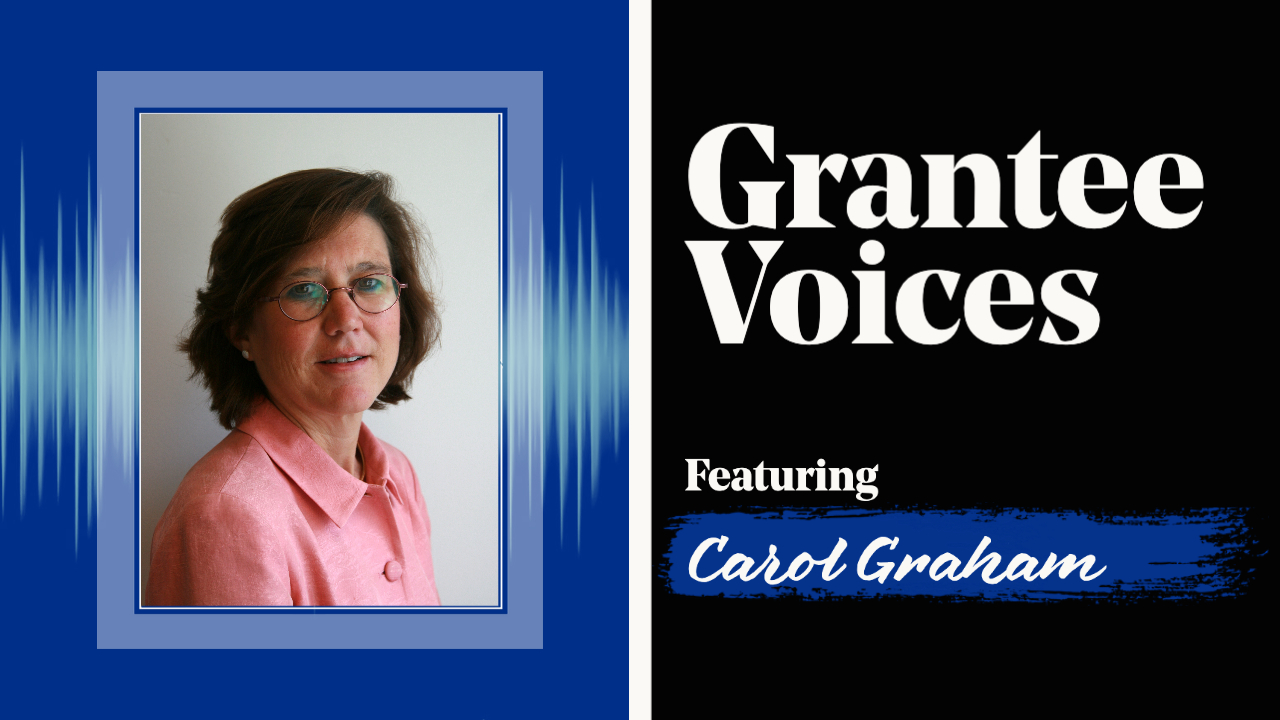In October 2022, neuroscientist Dr. Molly Crockett flew to New Delhi to meet a group of scientists, scholars, and contemplative practitioners. The group then took a flight to Dharamsala, a hillside city that rests at the foothills of the Himalayas. From Dharamsala, taxis ferried them up a harrowing mountain road. They were going to join the 35th Mind & Life Conversation. They were going to meet the Dalai Lama.
His Holiness the 14th Dalai Lama has lived in exile for fifty years. Since fleeing his homeland for Dharamsala, Tibet’s spiritual leader has dedicated himself to the work of nonviolence and compassion. The Mind & Life Conversation is an annual event facilitating dialogue about critical issues between His Holiness and leading scholars and contemplatives from around the world. Like the events before it, this year’s Conversation centered on intimate discussions at the intersection of scientific and contemplative understanding.
For Dr. Crockett, the opportunity to participate in these discussions was both professionally and personally significant. In addition to being a neuroscientist, a professor of psychology at Princeton University, and the director of the university’s Crockett Lab, Crockett is also Buddhist and a practitioner of meditation. As the group arrived at the Dalai Lama’s home, even the landscape seemed to underline the transcendent potential of these conversations. “Dharamsala itself has a mystical quality. It’s shrouded in clouds a lot of the time but every so often, those clouds will part and reveal this majestic set of snow-capped peaks.” Crockett pauses, then adds: “Which I guess is a metaphor for meditation in a sense: there are often thoughts that cloud our minds, but if we can wait for those to dissipate, we can see really impressive insights.”
For months leading up to the event, Crockett pondered what research to present to His Holiness, eventually landing on the power of moral stories to shape individual and collective action. Humans have long leaned on storytelling as a way to instruct behavior and choices. Moral stories—from koans to fables to parables—are an ancient narrative form. Because we are such a social species, Crockett explains, “information about who to trust is the most important information that we can get. We are so motivated to be accepted by other people and to be trusted, and we’re so motivated to see ourselves as moral, that this shapes the way that we consume and transmit information.”
Crockett believes that moral stories have the power to shape humanity’s response to some of our most pressing issues, from outrage on social media to the pandemic to the climate crisis.
When moral stories point to what is best about human nature, they can influence us away from destruction and toward collective compassion.
“We are capable of great compassion”
The morning of the presentation, Crockett woke up to a violent thunderstorm. Thunder boomed like cannon fire and lightning splintered the sky. Rain fell as if tipped from cosmic buckets. “I sat on the covered balcony in my room and did a meditation practice on four elements: water, earth, fire, air,” says Crockett. “I felt so connected to the earth, the planet, and nature.”
The rain continued throughout the morning. When it was time for the conversations with His Holiness to begin, the group made their way to the Dalai Lama’s residence. As they crossed the threshold, a clap of thunder shook the sky. The president of Mind & Life Institute, Susan Bauer-Wu, turned to Crockett with a smile and said, “This is auspicious.”
The Dalai Lama entered the meeting room wearing his signature countenance of delight. Audience members bowed as he made his way to the front, their palms pressed together. Sitting next to His Holiness and flanked by tables of tea, Crockett opened the conversation with a summary of their research on moral stories. Crockett has given plenty of presentations over the years, but none have felt quite as charged as this: sitting down with one of the world’s great spiritual leaders to ponder compassion in an era of outrage. “This was by far the presentation that felt like it had the highest stakes for me—and yet I didn’t feel nervous at all; I felt extremely calm and grateful,” Crockett says. “I had been told in advance that His Holiness has this effect on people. It was a moment of great electricity and joy.”
Stories, Crockett told the Dalai Lama, can either limit or expand our circle of compassion. Writer Rebecca Solnit says that we are in a “story crisis.”
The stories we tell ourselves claim that human beings are fundamentally selfish. This narrative creates self-fulfilling prophecies; if everyone thinks that everyone else is selfish, we have little motivation to act selflessly for the sake of others.
The problem with this story, Crockett went on, is that it’s only partially true. Humans can act selfishly, to be sure. “But science tells us something different: that we are capable of great cooperation and compassion.” Research reveals that even at the earliest stages of life, humans possess the ability to cooperate, and young children act on their instinct to help others.
His Holiness nodded in agreement. “I believe that a human being’s basic nature is more compassionate. We’re born from a mother, and we survive with our mother’s compassion.” He spoke of how, when we witness genuine compassion among others, we deepen our own capacity for compassion. But it’s hard to see this side of the story when we are surrounded by examples of selfishness. Drawing from the Crockett Lab’s research about social media, Crockett explained how online algorithms are designed to locate outrage—and then amplify it. These algorithms also reward people for expressing outrage. This results in an inaccurate story about humanity’s collective anger. And yet there are injustices that should incite our anger. To what extent, Crockett wondered, is outrage helpful for cooperation and social cohesion—and to what extent is it harmful?
In response to these questions, His Holiness responded with a moral story of his own. He gave the example of a student misbehaving in class. If the teacher truly keeps the student’s best interest in mind, His Holiness said, they will respond with compassion. And while Crockett’s research shows that outrage is often motivated by a desire to see the perpetrators suffer, the Dalai Lama’s response invites a new question: “What does it look like if we have outrage that’s motivated both by compassion for victims and by compassion for perpetrators who might be acting out their own suffering?”
“A crisis is a turning point”
Moral narratives can operate at the individual level by teaching about personal choices and their ramifications. In the story of the tortoise and the hare, for example, the tortoise is rewarded for persistence and tenacity, while pride and laziness cost the hare the race. Moral stories can also operate at a public level. They help teach us who should take responsibility for the state of the world.
Throughout the two-day Mind and Life Conversation, discussions returned again and again to the climate crisis. Crockett believes that moral narratives can, and do, impact our response to climate change—for better or worse. “Fossil fuel companies really want us to believe that the main actions responsible for climate change are individual actions,” Crockett explains. In other words, if we could all just cut back on our carbon footprint as individuals, we could solve the climate crisis. “Of course, this is favorable for fossil fuel companies because it deflects responsibility away from their actions onto individuals.” And individual motivation, Crockett adds, depends on our beliefs about other people. What’s needed are moral narratives that galvanize both individual and collective action.
This gets at the unique power of moral narratives in our time right now. In the face of multiple crises—a global pandemic, a warming planet—we have the chance to tell a new story. “A crisis is a turning point,” says Crockett. “It’s a point where you can go on a path towards progress and recovery and flourishing, or you can go on a path towards death and destruction and doom.” This doesn’t mean telling a story that overlooks the messiness and ambiguity of life, but rather learning to narrate our existence in ways that allow for mistakes, learning, reconciliation, and reparation. As Crockett’s research shows, things change for the better when people come together and tell a more positive story about human nature. “People can be transformed. They can change the way they see themselves and what they care about.”
Annelise Jolley is a journalist and essayist who writes about place, food, ecology, and faith for outlets such as National Geographic, The Atavist, The Rumpus, and The Millions. Find her at annelisejolley.com.



